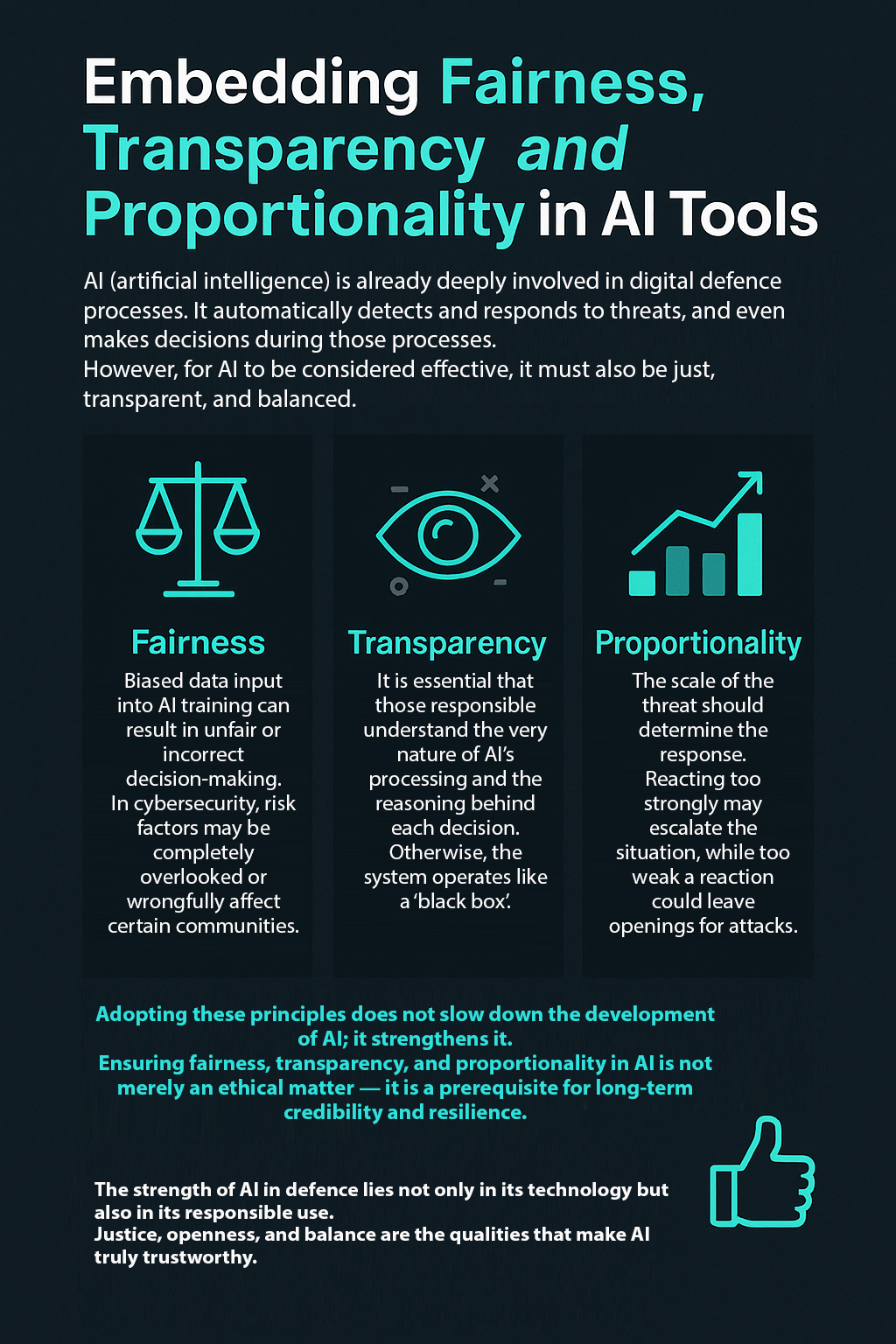5th EU-GUARDIAN NEWSLETTER
October 2025
🚀 In future editions, we will launch a series of Reflections on the integration of AI in cyber defence, in which we will explore the ethical, legal and technical dilemmas that will shape the future of digital security in Europe. A critical and strategic look at how to build a more reliable, responsible and prepared cyber defence system in the face of the challenges ahead. From data to decision: ethical and technical challenges of AI in cyber defence
AI (artificial intelligence) is already primarily involved in the digital defense process.
It automatically detects and responds to threats, and even makes decisions during the process.
However, for AI to be considered effective, it needs to be just, open, and balanced as well.
These four aspects are not just optional; they are indispensable.
Fairness: Biased data input into AI training can result in unfair or wrong decision-making.
Particularly in cybersecurity, risk factors can be completely neglected or wrongfully affect certain communities.
Transparency: It is necessary that those in charge comprehend the very essence of AI's processing and the reasoning behind each decision.
Otherwise, when the system operates like a “black box”, there is neither trust nor control.
Proportionality: The rising of threats should determine the response.
Reacting too strongly might worsen things, whereas too little reaction might leave openings for attacks.
Adopting these principles, far from slowing down the development of AI, actually strengthens it.
It builds more secure, more trusted, and more accepted systems.
Responsible AI is not merely an ethical issue; it is a prerequisite for long-term credibility and resilience.
The bottom line is: the strength of AI in defense does not rest only on its technology but also on its usage.
Justice, openness, and balance are the traits of the AI that can be trusted.
👍 The output content is human-written.


‘Funded by the European Union. The opinions and views expressed are, however, solely those of the authors and do not necessarily reflect those of the European Union or the European Commission. Neither the European Union nor the granting authority can be held responsible for them.’
EU GUARDIAN- EDF-2021-CYBER-R-CDAI-2